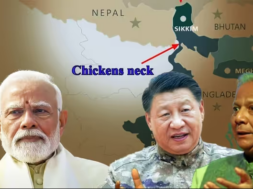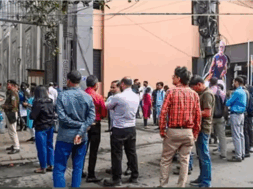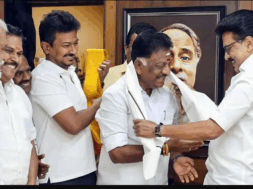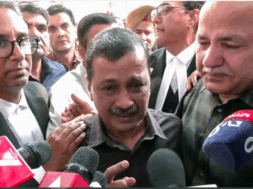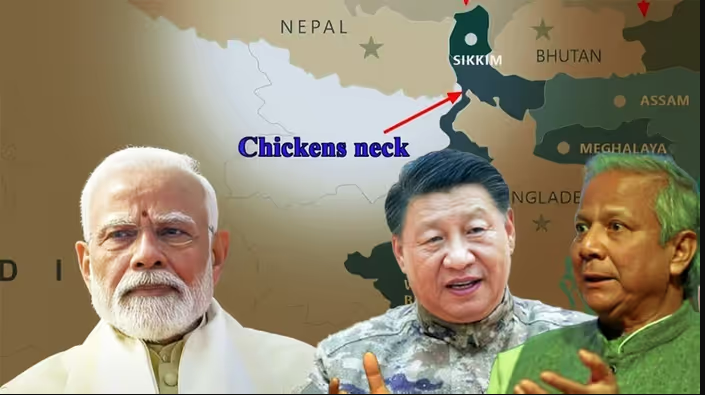
Manas Dasgupta
NEW DELHI, Apr 1: The remarks by the Bangladesh interim government’s chief advisor Muhammad Yunus on the North-eastern states have drawn sharp reactions in India with both the ruling BJP and the opposition Congress leaders taking strong objections against the “offensive” remarks by the incumbent head of the government of the neighbouring country.
While Assam Chief Minister Himanta Biswa Sarma has described the remarks on the north-eastern states to be “dependent on Bangladesh” as “strongly condemnable,” the Congress spokesman Pawan Khera said Dhaka’s approach was dangerous for the Northeast and questioned the Centre’s foreign policy.
A video of Mr Yunus’s remarks, apparently made during his four-day trip to China, is doing the rounds on social media. “The seven states of India, the eastern part of India, are called the seven sisters. They are a landlocked region of India. They have no way to reach out to the ocean,” he is heard saying. He says Bangladesh was the “guardian of the ocean” for the region. “This opens up a huge possibility. This could be an extension for the Chinese economy,” he said.
Taking to X, the Assam Chief Minister said: “The statement made by Md Yunus of Bangladesh so-called interim government, referring to the seven sister states of Northeast India as landlocked and positioning Bangladesh as their guardian of ocean access, is offensive and strongly condemnable.”
He said the remark underscored the “persistent vulnerability narrative” associated with India’s strategic “Chicken’s Neck” corridor. This corridor was a narrow strip of land in northern West Bengal connecting the northeast to the rest of the country.
“Historically, even internal elements within India have dangerously suggested severing this critical passageway to isolate the Northeast from the mainland physically. Therefore, it is imperative to develop more robust railway and road networks both underneath and around the Chicken’s Neck corridor. Additionally, exploring alternative road routes connecting the Northeast to mainland India, effectively bypassing the Chicken’s Neck, should be prioritized,” Mr Sarma said.
“Though this may pose significant engineering challenges, it is achievable with determination and innovation. Such provocative statements by Md Yunus must not be taken lightly, as they reflect deeper strategic considerations and longstanding agendas,” he added.
Pradyot Bikram Manikya Debbarma, the chief of Tripura’s Tipra Motha party, an ally of the BJP, called for India to carve out a route to the ocean by supporting “our indigenous people who once ruled Chittagong, so we are no longer dependent on an ungrateful regime.”
“India’s biggest mistake was to let go of the port in 1947 despite the hill people living there wanting to be a part of the Indian union. Mr Yunus may think he is the guardian of the ocean, but the reality is he is a stop-gap leader at the age of almost 85. Let’s not forget Tripura is only a few miles away from the port he is speaking about,” he said.
Responding to Mr Sarma’s push for infrastructure, he said: “Rather than spending billions on innovative and challenging engineering ideas, we might as well break up Bangladesh and have our own access to the sea. The Chittagong Hill Tracts were always inhabited by indigenous tribes, which always wanted to be part of India since 1947. There are lakhs and lakhs of Tripuri, Garo, Khasi, and Chakma people who reside in Bangladesh in terrible conditions in their traditional lands. This should be utilised for our national interest and their well-being.”
Senior Congress leader Pawan Khera said Bangladesh was inviting China for a siege of India. “The Bangladesh government’s approach is very dangerous for the safety of our Northeast. The government is not watching Manipur and China has established a village in Arunachal Pradesh,” he said in a post on X criticising the Narendra Modi government’s foreign policy for failing to handle Bangladesh, “for whose creation we played a major role.”
Gaurav Gogoi, a senior Congress leader from Assam and the deputy leader of the opposition in the Lok Sabha, said the Prime Minister Narendra Modi recently wrote to Bangladesh, highlighting the “strong ties” between the two nations. “After that Muhammad Yunus’ recent remarks about Northeast India and China are deeply concerning and unacceptable, as they undermine India’s sovereignty and territorial integrity,” he said.
Sanjeev Sanyal, a member of Prime Minister Modi’s economy advisory council, questioned why Mr Yunus mentioned the Northeast. “Interesting that Yunus is making a public appeal to the Chinese on the basis that 7 states in India are land-locked. China is welcome to invest in Bangladesh, but what exactly is the significance of 7 Indian states being landlocked?” he said.
Former Indian High Commissioner to Bangladesh, Veena Sikri, also condemned Mr Yunus’ statement. “Very shocking statement by Chief Adviser Muhammad Yunus. He has absolutely no right to make a statement like that. He knows that the northeast is an integral part of India, and we have had very close discussions with the Government of Bangladesh on access by Northeast India to the Bay of Bengal, and there are formal agreements on this,” she said.
The remarks came amid Dhaka’s outreach to Beijing in the aftermath of the ouster of the Sheikh Hasina regime. India, which has given refuge to the former Prime Minister, has been watching the interim government’s geopolitical moves. Dhaka and Delhi have exchanged stern remarks after India raised concerns over reports of attacks on minorities. In a friendly gesture on Bangladesh’s Liberation Day, Mr Modi wrote to Mr Yunus reiterating India’s commitment to advancing the partnership between the two countries.
Mr Yunus’ remarks on the landlocked nature of India’s North-eastern states and the sharp response from the region’s leaders have again put the vital Chicken’s Neck corridor under the spotlight. The Chicken’s Neck, also known as the Siliguri corridor, is a narrow strip of land in West Bengal’s Siliguri that connects India’s Northeast with the rest of the country
This narrow strip assumes great significance amid Delhi’s tense ties with Beijing in the aftermath of the Doklam face-off. Frosty relations with Bangladesh after the ouster of the Sheikh Hasina regime added a new dimension to the geopolitics surrounding the Chicken’s Neck and India’s need to ensure its security.
All land transport to the Northeast, whether through road or rail, must pass through this corridor. At its narrowest, the corridor is just about 22 km wide. Called Chicken Neck because of its geographical shape, this strip has Nepal and Bhutan to its north and Bangladesh to its south. Any blockage on this route will effectively cut off the Northeast from the rest of India.
In the 1962 war, China did not directly attack the Chicken’s Neck, but the rapid advance of its forces exposed the vulnerability of this key stretch. Defence strategists have since pointed to a scenario in which a Chinese advance could effectively ‘choke’ the Chicken’s Neck and isolate the Northeast from India. This has prompted the Indian government to deploy more forces there, including Border Security Force, Sashastra Seema Bal, and Indo-Tibetan Border Police.
Chicken Neck fears returned to haunt India in 2017 when China started constructing a road at Doklam, which is at the centre of a territorial dispute between China and Bhutan. When China tried to expand the road, India objected because the extension would give Beijing a geographical advantage and make Chicken’s Neck vulnerable. India’s opposition led to a standoff between Indian and Chinese forces. The road construction was eventually halted during a disengagement exercise.
The ouster of the Sheikh Hasina government in Bangladesh after a nationwide movement last year brought an interim government led by Mr Yunus to power. India has had a longstanding friendly relationship with Dhaka due to Delhi’s role in the Bangladesh Liberation War. But the change of guard in Bangladesh has seen a shift in bilateral ties. India has expressed concerns over reports of attacks on minorities and received stern responses. The new regime has also reached out strongly to China, and India has watched cautiously. The changing dynamics between Delhi and Dhaka could prove critical in India’s plans concerning the Chicken’s Neck.
